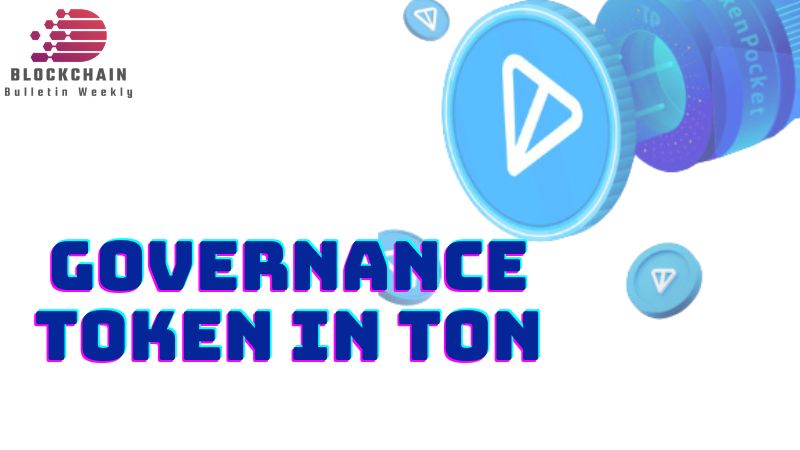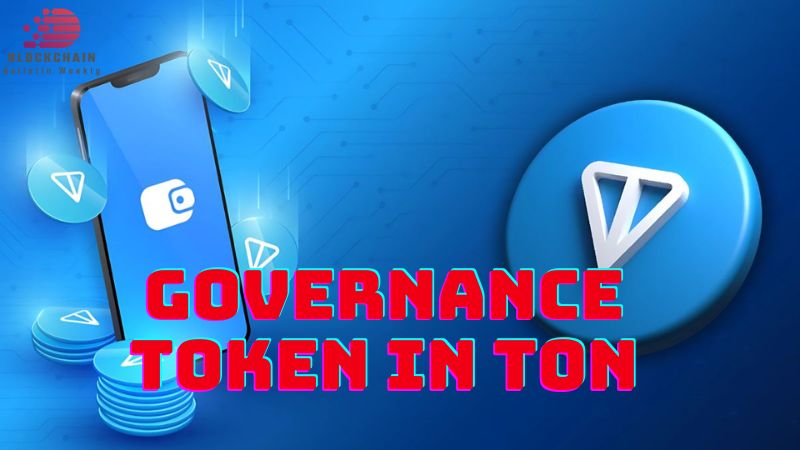The Governance Token in TON, Toncoin (TON), plays a central role in the decentralized governance of The Open Network. It enables token holders to participate in decision-making, influencing the platform’s development and future. This article explores how the Governance Token in TON impacts the ecosystem and shapes its evolution.
What is TON?
TON, short for The Open Network, is a blockchain platform designed to handle large-scale decentralized applications and services. With its emphasis on scalability and efficiency, TON aims to support a vast range of use cases, from decentralized finance (DeFi) to gaming and beyond. At the core of TON’s ecosystem is Toncoin (TON), the native cryptocurrency that powers transactions, staking, and governance within the network.
The Role of the Governance Token in TON
The governance token in TON is Toncoin (TON). This token is essential to the platform’s operation and provides its holders with the ability to participate directly in the network’s governance. By holding Toncoin, token owners gain voting power, enabling them to have a say in crucial decisions regarding the network’s upgrades, proposals, and overall development.
Decentralized Governance
One of the standout features of TON is its decentralized governance system. Rather than being controlled by a central authority, decisions within the network are made by the community of token holders. This decentralized model ensures that no single entity can dictate the future of the platform, promoting fairness and inclusivity.
Token holders are granted voting power proportional to the amount of Toncoin they possess. This means that those with a larger stake in the network have a more significant influence on the decisions made, but smaller holders still have a voice. The governance token in TON plays a pivotal role in ensuring that the network operates democratically, with collective participation driving the future direction of the platform.
The Voting System
In TON, governance is structured around a voting system. Token holders can vote on various proposals that influence the development and operation of the network. These proposals might include changes to the protocol, new features, or other adjustments aimed at improving the ecosystem.
The more Toncoin a participant holds, the greater their voting power, allowing them to have a larger influence on the outcome of governance decisions. This system promotes a meritocratic approach where those who contribute more to the network’s growth and security have a stronger voice in shaping its future.
Consensus Mechanism and Validators in TON
TON uses a Proof-of-Stake (PoS) consensus mechanism, where validators play an essential role in securing the network and validating transactions. Validators are required to stake their Toncoins to participate in this process. The PoS mechanism ties directly into governance, as validators also participate in voting on proposals that affect the network.
Validators have the authority to propose changes and vote on network proposals, meaning their actions directly influence the evolution of TON. Their involvement in the governance process ensures that the network remains stable and responsive to community-driven changes.
The Proposal Process
Changes to the TON network can be proposed by community members, and these proposals require approval before they are implemented. Proposals typically need to receive the support of a majority of validators or token holders to move forward. The voting process ensures that decisions are made collectively, reflecting the interests of the broader community rather than a select few.
This democratic approach to decision-making fosters a collaborative environment, where transparency and community input are prioritized. The active involvement of the governance token in TON holders ensures that the platform evolves in a way that aligns with the needs and preferences of its users.
Community Engagement and the Future of TON Governance
The governance model in TON encourages community participation, making it more than just a blockchain platform—it is a dynamic, user-driven ecosystem. As the platform grows, the governance token in TON continues to empower users, developers, and validators to shape the future of the network.
TON’s governance structure fosters an environment of collaboration and transparency, allowing all participants to engage in meaningful ways. This decentralized approach ensures that the network can adapt to challenges, adopt innovations, and evolve based on the consensus of the community.
Why the Governance Token in TON Matters?
The governance token in TON, Toncoin (TON), is central to the platform’s decentralized governance model. By holding and staking Toncoin, users gain the ability to participate in key decisions that shape the network’s future. This democratic, decentralized approach to governance empowers the TON community to influence the direction of the platform, ensuring that it remains adaptable and resilient in the face of challenges.
As TON continues to grow, the role of the governance token in TON will become even more critical in guiding the development of decentralized applications, blockchain features, and protocol upgrades. By leveraging the power of the community, TON is paving the way for a more open and decentralized future in the world of blockchain technology.
To stay updated on the latest in blockchain governance and TON’s development, follow our blog for expert insights and news on the evolving world of decentralized technologies.
Follow Blockchain Bulletin Weekly for Exclusive Updates!

